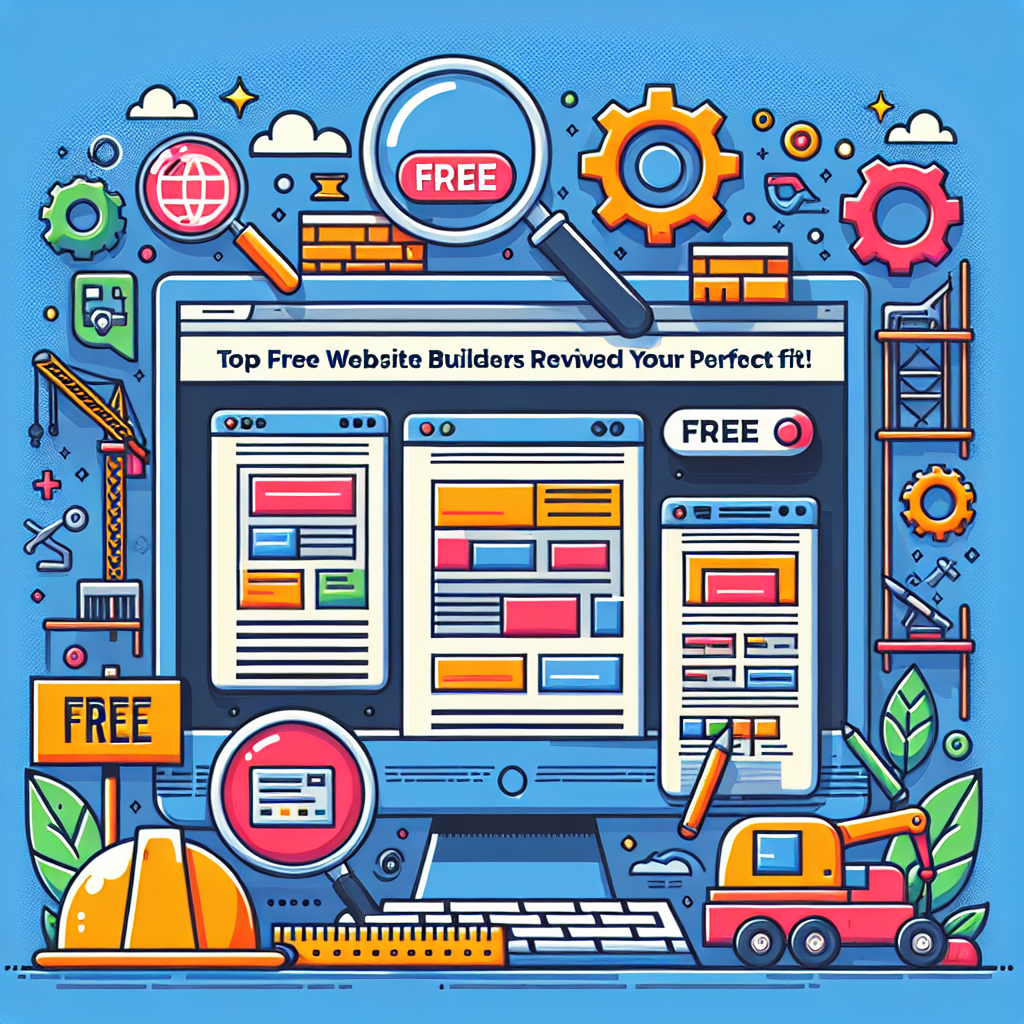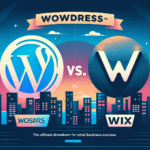Creating a website has become essential for individuals, businesses, and organizations alike. Fortunately, numerous free website builders make it easy to establish an online presence without any coding skills. This article reviews some of the top free website builders, highlighting their features, pros, cons, and ideal use cases to help you find your perfect fit.
1. Wix
Overview
Wix is one of the most popular website builders available, known for its user-friendly drag-and-drop interface and extensive template library.
Key Features
- Templates: Over 500 customizable templates.
- Drag and Drop: Easily add elements like images, videos, and text.
- App Market: Access to a variety of third-party apps for added functionality.
Pros
- Intuitive design interface.
- Wide range of apps and plugins.
- Excellent customer support.
Cons
- Free plan includes Wix branding.
- Limited storage and bandwidth on the free tier.
Best For
Individuals and small businesses looking for a visually appealing, easy-to-build website without technical skills.
2. Weebly
Overview
Weebly is another user-friendly website builder that offers a good balance of design flexibility and technical features.
Key Features
- E-commerce Support: Built-in e-commerce tools for online stores.
- Mobile Optimization: Automatically adjusts websites for mobile devices.
- SEO Tools: Basic SEO tools to improve your website’s search engine visibility.
Pros
- Strong e-commerce capabilities.
- Easy-to-use interface.
- Good support for mobile devices.
Cons
- Limited customization options compared to competitors.
- Free version includes Weebly branding.
Best For
Small business owners and entrepreneurs looking to sell products online and create an efficient, straightforward website.
3. WordPress.com
Overview
WordPress.com is a hosted version of the self-hosted WordPress platform, providing a robust platform for bloggers and content creators.
Key Features
- Blogging Focused: Perfect for bloggers with built-in blogging tools.
- Custom Domains: Option to upgrade for custom domain names.
- Community: Strong community support and access to forums.
Pros
- SEO-friendly features.
- Extensive community and support resources.
- Variety of themes available for different niches.
Cons
- Learning curve for new users, especially those not familiar with WordPress.
- Limited customization on the free plan.
Best For
Bloggers and writers who want a strong focus on content and community engagement.
4. Google Sites
Overview
Google Sites is a simple website builder that integrates seamlessly with other Google services.
Key Features
- Integration with Google Workspace: Effortlessly incorporate Google Docs, Sheets, and more.
- Collaboration: Easy collaboration with team members in real time.
- Custom Domains: Option to use a custom domain with added configuration.
Pros
- Extremely user-friendly.
- Ideal for collaboration, especially in educational or team settings.
- No branding on free websites.
Cons
- Limited design flexibility and template offerings.
- Might lack advanced features compared to other builders.
Best For
Education institutions, project teams, or individuals looking for a simple, collaborative website solution.
5. Jimdo
Overview
Jimdo is a website builder focused on providing a personal touch with a mix of artificial intelligence to streamline the website creation process.
Key Features
- AI-Powered Builder: Helps create a site based on your answers to questions.
- E-commerce Features: Simple e-commerce capabilities on the free plan.
- SEO Tools: Built-in tools to optimize your website for search engines.
Pros
- Quick setup process.
- AI assists in creating tailored websites.
- Good for small online stores.
Cons
- Limited customization options.
- Jimdo branding on free pages.
Best For
Individuals or businesses that need to launch a website quickly and with minimal hassle.
6. Strikingly
Overview
Strikingly is known for its single-page website designs, making it ideal for portfolios, events, and landing pages.
Key Features
- One-Page Design: Focus on simplicity and effectiveness.
- Mobile Responsiveness: Websites look good on all devices.
- Custom Domains: Option to upgrade for custom domain use.
Pros
- Simple and effective for creating landing pages.
- Excellent for showcasing portfolios.
- No coding required.
Cons
- Limited features in free version.
- May not be suitable for larger websites with multiple pages.
Best For
Freelancers, artists, and businesses looking to create effective landing pages or portfolios.
Conclusion
Choosing the right website builder largely depends on your needs, technical skill level, and desired features. Each of the free website builders reviewed offers unique strengths:
- Wix for comprehensive design flexibility.
- Weebly for e-commerce capabilities.
- WordPress.com for robust blogging.
- Google Sites for simplicity and collaboration.
- Jimdo for a quick setup with AI assistance.
- Strikingly for effective one-page websites.
Take the time to explore these options, assess your requirements, and start building your online presence today!





